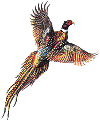|
What is Giardia? By VetSmart and Dr. Becky Williams Giardia is a microscopic organism that is dangerous to virtually all warm-blooded creatures. If left untreated, Giardia can cause severe illness in pets and humans. This protozoan lives in the cells lining the beginning of the small intestine. Giardia kills these cells and severely damages the bowels. The infection can prevent the absorption of essential nutrients and vitamins, and the resulting malnutrition can endanger your pet’s health. With diminished resistance, other diseases can attack your pet. Giardia can be remarkably easy for your pet to catch: Just one lap of contaminated water or a bite on a contaminated stick is all it takes! The parasite is spread in the stool and can occasionally be passed on to you and other members of your family. Your pet can contract this disease by drinking out of a stream or other contaminated water; licking paws after walking over ground or concrete infected with Giardia cysts: or though direct contact with an infected animal. Giardia can be very hard to diagnose. Lack of energy, weight loss in spite of a healthy appetite, occasional to sever vomiting, and/or recurring diarrhea may be symptoms of the disease. If your pet has any of these symptoms, it should be examined and a microscopic fecal examination should be performed. Whether or not the problem turns out to be Giardia, those signs are more than enough to indicate that your pet needs to be examined professionally and thoroughly. How is Giardia diagnosed? We diagnose the infection by looking for microscopic Giardia cysts in fresh stool samples. It is often necessary for us to examine several samples before we find the cysts, since they are shed on an irregular basis. This means that the sample may be negative one day and positive the next. Blood test are often necessary to determine the cause of the illness. Actually finding the cysts is more likely if loose (in contrast to "normal") stools are available to examine. What if the infection goes untreated? Diarrhea and other clinical signs may get worse or disappear. Giardia may cause damage without revealing symptoms in the early stages. Occasionally this can go on for a long time before severe illness occurs. Once in a while, pets get over the disease without treatment, but this is rare. Thus, your pet might appear normal while continuing to shed Giardia in its stool. This means that your pet will continue to act as a source of infection for other pets as well as two-legged members of your family. Obviously, a careful and early diagnosis is essential to the health of your pet as well as to your family members. Treatment for Giardia Step by step, this is what you need to do in a situation involving Giardia infection: -You should medicate all infected pets in the household with a drug which kills Giardia. -You should clean your yard of all feces daily during the treatment period and regularly after that. -If a kennel or dog runs are contaminated, wash them down with a bleach solution – 4 ounces of liquid chlorine bleach per gallon of water. This should be done without fail every day during the treatment period. It can be very difficult to guard your pet against Giardia. Frequently, more than one course of therapy is needed. -When you have finished giving the mediation, bring a fecal sample to us for microscopic examination. It is usually necessary to repeat this examination a week later and then a month later to determine whether further medication will be needed for you pet.
Remember -Giardia is a parasite that does more than cause digestive upset in its victims. It also can cause permanent intestinal and organ damage which can shorten your pet’s life. -We must work together to eliminate this problem. Recovery is possible, assuming that the organism is identified and treated early. -The cysts shed intermittently. Therefore, on negative test doesn’t always mean your pet is free of Giardia -You can help prevent reinfection with Giardia by keeping your pets from drinking from streams or other dirty water, by placing your pet’s water bowl in an area where birds are unable to drop their feces in it, and by cleaning your yard regularly.
Updated 09/27/98 |
